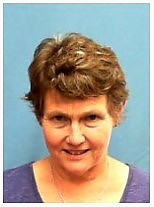To earn the Bachelor of Science in Computer Science degree, students must complete 121 credits:
which includes the general education core (31 credits not met by major requirements), 58 credits of additional major requirements, and 32 credits of open electives. Students must complete at least 45 credits at the 3000/4000 level.
General Education Requirements: 43 credits
31 credits, plus 12 credits listed in major requirements that also fulfill general education requirements
- WRT1011 Composition and Rhetoric: 3 credits
- WRT1012 Research and Analysis: 3 credits
- EDU1011 Perspectives in Learning or EDU1001 Foundations in Learning: 3 credits
- COM1011 Introduction to Communication: 3 credits
- Humanities: 3 credits
- Natural Sciences with lab: 4 credits
- Social Sciences: 3 credits
- Interpersonal Communication/Creative Expression: 3 credits
- Alternative Study (could be at the 2000 or 3000/4000 level): 3 credits
- WRT3011 Advanced Writing: 3 credits
Computer Science Major Requirements: 58 credits
1000/2000 CSC Major Requirements (18 credits)
- CSC1635 Computer Science I(also fulfills the quantitative reasoning general education requirement): 3 credits
- CSC2635 Computer Science II: 3 credits
- CSC2741 Database Design: 3 credits
- CSC2638 Data Structures and Algorithms: 3 credits
- CSC2751 Networking and Security: 3 credits
- CSC2771 Embedded Systems: 3 credits
3000/4000 CSC Major Requirements (21 credits)
- CSC3871 Operating Systems: 3 credits
- CSC3731 Programming Languages: 3 credits
- CSC3874 Software Engineering: 3 credits
- CSC4871 Computer Architecture: 3 credits
9 credits of selected topics in computer science (may include, but is not limited to: Web Science, Computer Graphics, Mobile Application Development, Artificial Intelligence)
Math Requirements: 13 credits
- MAT2731 Introduction to Calculus (also fulfills the Math requirement in the core): 3 credits
- MAT2741 Linear Algebra: 4 credits
- MAT2751 Discrete Mathematics: 3 credits
- MAT3721 Prob & Statistics Sci & Engin: 3 credits
Capstone: 3 credits
The major culminates in a final 3-credit capstone experience that provides students with the opportunity to integrate the knowledge that they have gained from across the curriculum. Students are encouraged to work in teams, and can pursue either an applied or theory project. The planning phase of the capstone project is done in CSC3874 (Software Engineering)
- CSC4991 Comp Sci Capstone: 3 credits (Gen Ed requirement)
Open Electives: 32 credits
20 credits at any level (Only six 1-credit courses allowed)
12 credits at the 3000/4000 level
121 total credits

